The U.S. Departments of Justice and Transportation have launched a wide-ranging probe of consolidation and anti-competitive conduct in air travel. What they will come to learn is that the federal government has fostered consolidation, and has made it nearly impossible to have competition in aviation as a matter of policy for decades.
A Request for Information has been issued by the DOJ Antitrust Division and the Department of Transportation on issues related to market consolidation, anticompetitive practices, and the overall state of competition in sectors impacting air transportation, such as airlines, airports, aircraft manufacturing, and air transportation sales channels, looking to asses how a lack of competition affects consumers, workers, and the overall economy.
Specific areas of interest include airline mergers, fare structures, airline rewards programs, airport access, aircraft manufacturing, labor markets, and the impact of federal actions on competition. The agencies are particularly interested in potential antitrust violations such as price-fixing, market allocation, and exclusionary practices. Comments are due December 23, 2024.
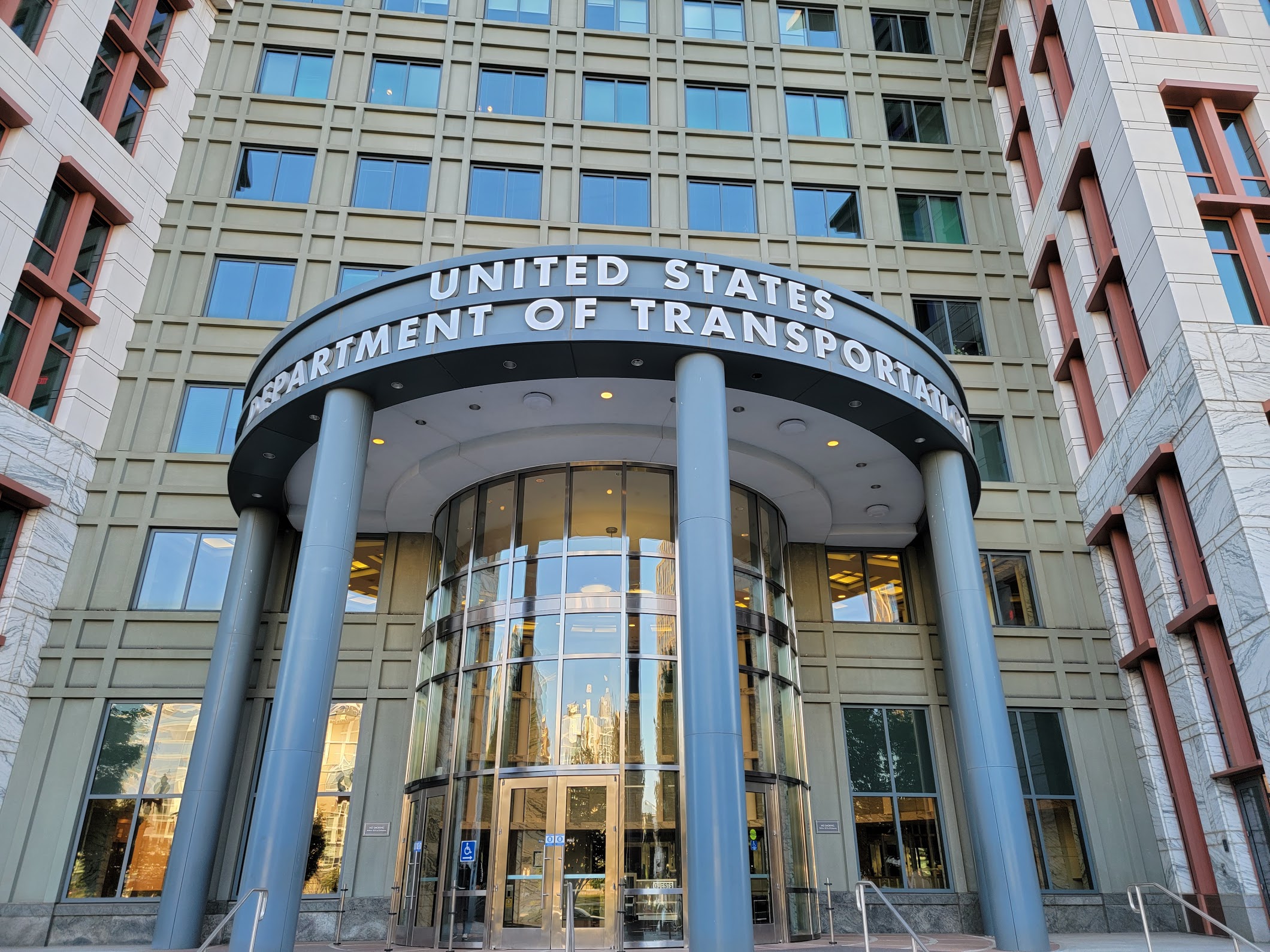
The Federal Government Has Consolidated The Airline Industry
The federal government signed off on mergers of United Airlines and Continental; Delta Air Lines and Northwest; American Airlines and US Airways; Southwest Airlines and AirTran to name just a few. Yet they recently fought to stop JetBlue from acquiring Spirit Airlines as though that would stifle competition in the industry, and now Spirit finds itself on the brink of bankruptcy.
The government has also signed off on antitrust-immunized joint ventures between U.S. airlines and foreign carriers. For instance,
- American Airlines, British Airways, Iberia, Finnair and Aer Lingus all coordinate schedules, prices and share revenue.
- American and Japan Airlines and also American and Qantas have anti-trust immunity to work together.
- Delta Air Lines and Korean Air; Delta Air Lines and Aeromexico; and Delta Air Lines and Air France KLM as well as Virgin Atlantic cooperate.
- United Airlines, Air Canada, and Lufthansa act as one across the Atlantic, United and ANA have a joint venture across the Pacific and United and Air Canada divvy up the transborder merket.
Yet somehow they’re shocked, shocked (!) to find out there’s gambling going on here. Joint ventures are a substitute for mergers which are generally prohibited between U.S. and foreign carriers. But in an environment where government blocks new market entrants, fostering a winnowing of existing players is highly problematic.
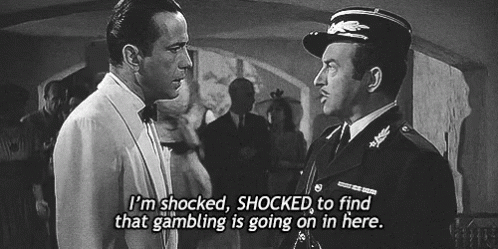
Barriers To Competition Are Largely The Result Of Government Policies
Unlike much of the world, in the United States airports are mostly owned by the government. While it’s not considered a best practice for a regulatory agency to also be a service provide (since that means the agency regulates itself), the TSA both regulates and carries out most airport security and the FAA’s air traffic organization but regulates and performs air traffic control duties.
Airport slots are handed out by the federal government as property rights to incumbent airlines, keeping out competition from new entrants into the market (congestion pricing for takeoff and landing fees would be a better solution than slots, and there’s no reason to gift these valuable assets as a subsidy in any case).
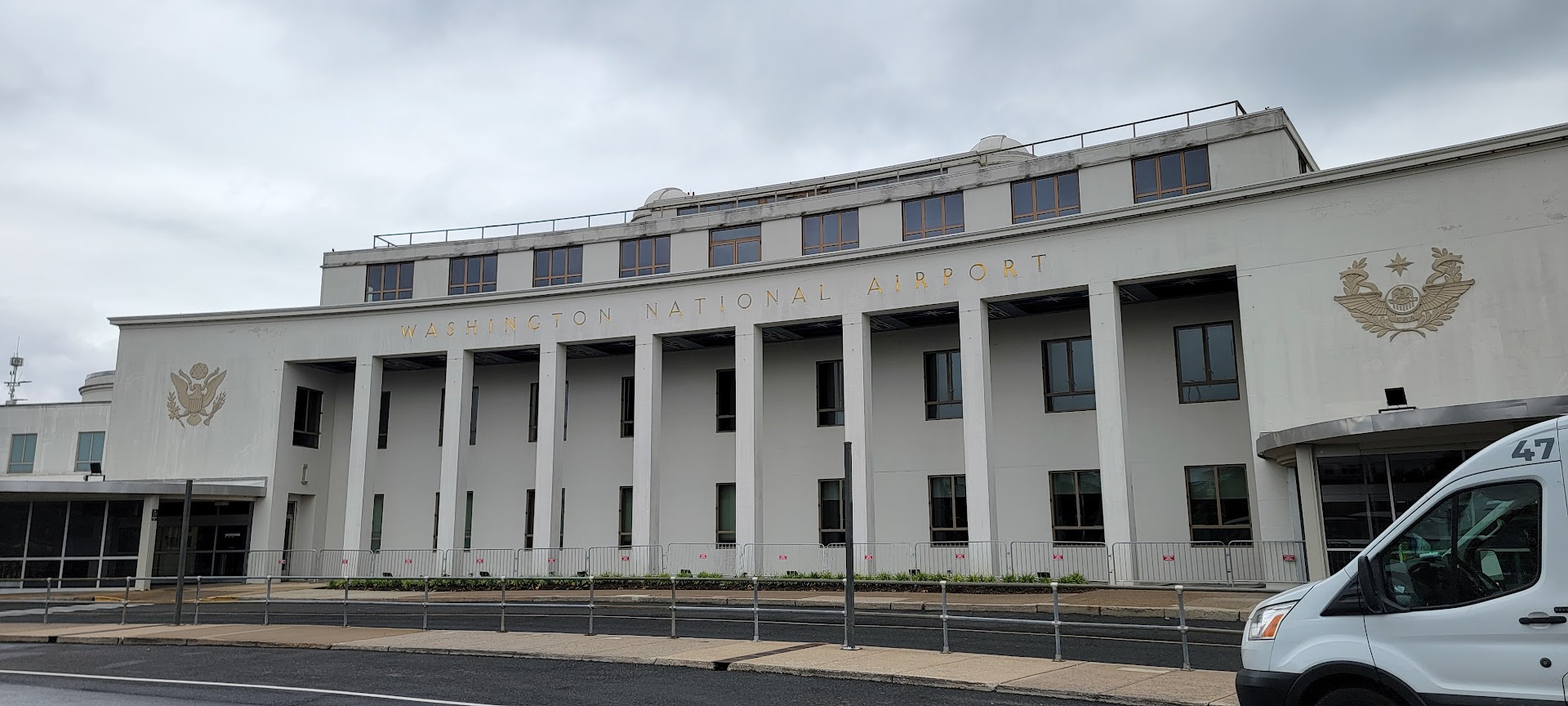
Even where slot controls aren’t an issue, gates at congested airports are. Federal legislation eliminated 12 out of 32 gates at Dallas Love Field, so that Southwest wound up in control of 90% of them. Meanwhile, when airlines want to serve Atlanta in competition with Delta, they have a hard time getting usable gates. JetBlue initially found themselves with use of gates on different concourses for each of its flights when they began service there.
Foreign ownership of U.S. airlines is restricted, and foreign carriers aren’t allowed to carry passengers between any two points in the U.S. (and that includes Guam, even). Ryanair and Singapore Airlines aren’t allowed to compete here.

The Problem Isn’t The Number Of Competitors, It’s Homogenization
The problem in the airline industry isn’t so much price (which has been on a long-term downward trend, inclusive of fees). It’s lack of product choice and product differentiation. And this is only likely to get worse.
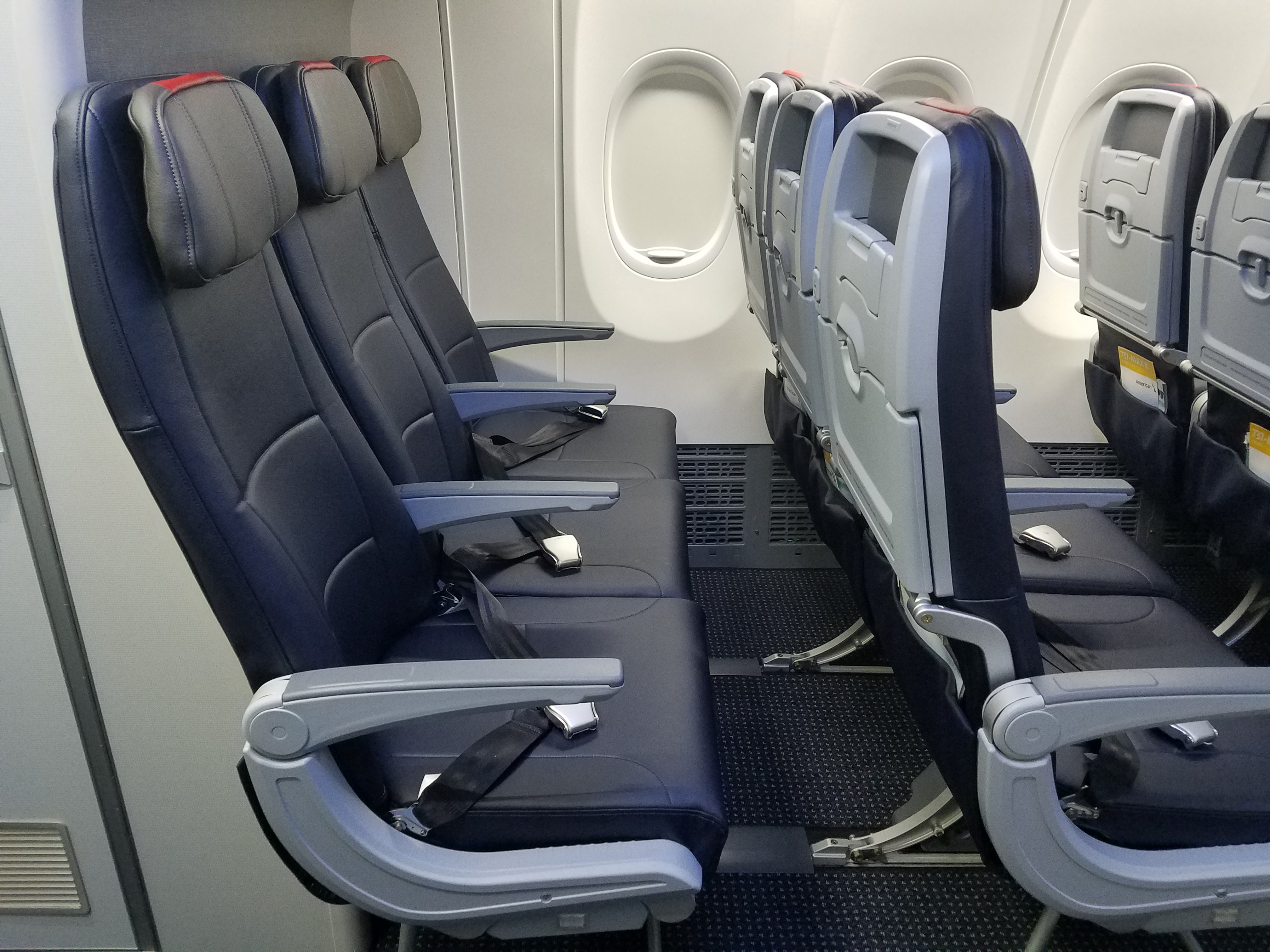
The crackdown on part 135 carriers that American Airlines, Southwest Airlines, and pilot union ALPA are pushing for will make small city air service using new technology electric planes impossible, cutting off innovation before it even starts.
The FAA says it plans to move forward with the crackdown on small competitors despite the harm this will do to innovation and competition.
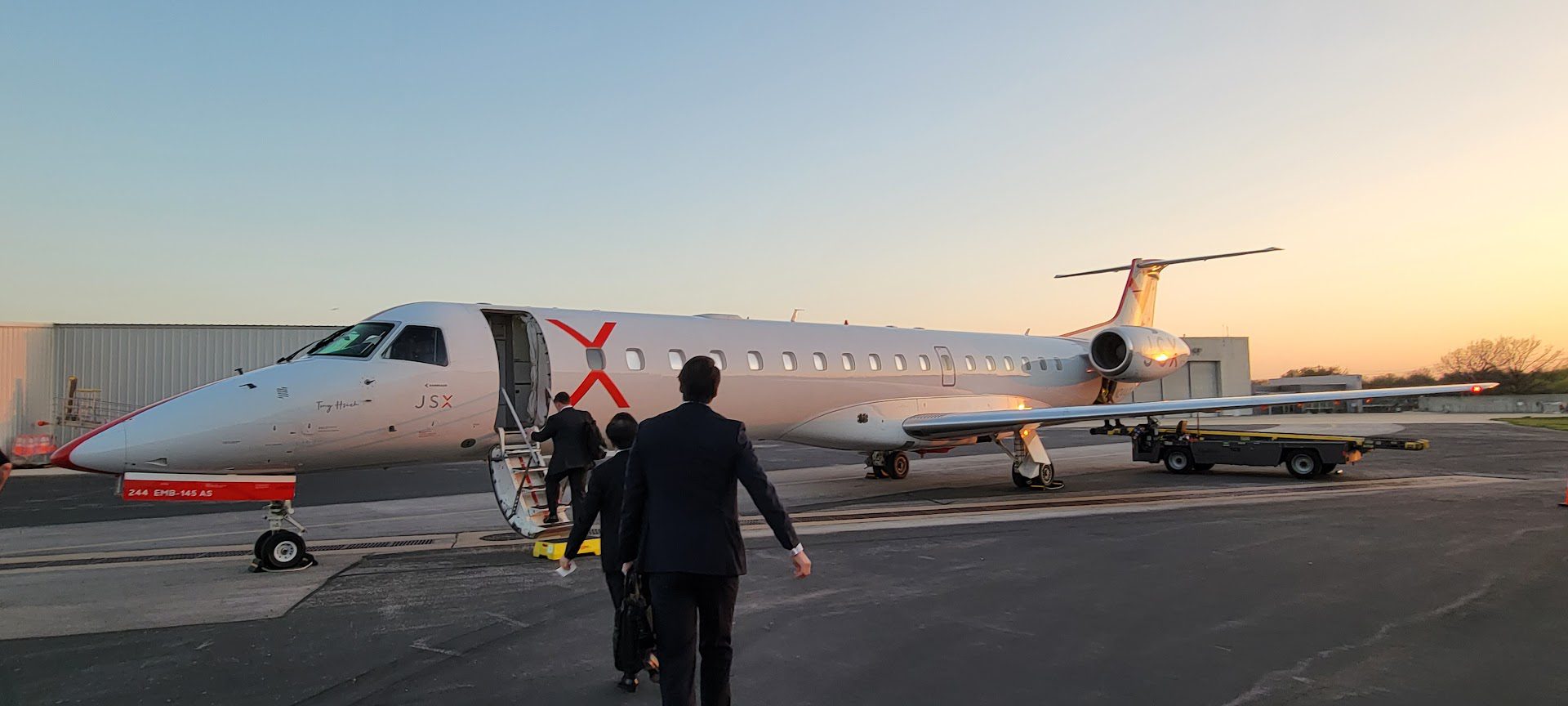
When government protects incumbents, there’s little need to innovate. And when government closely manages the end-to-end experience of air travel, there’s little room to innovate. For instance,
- Earlier this year United had to ground a fleet of planes because of an outdated no smoking sign rule. The FAA requires cabin crew to be able to turn no smoking signs off and on. They no longer need to turn them off, so they’re no longer made to turn off. United forgot to ask for the standard exemption to this rule. But the cabin experience is that micro-managed.
- American had to ask for government permission to put doors on their next generation business class seats – like JetBlue, Delta, and many foreign carriers have. The government initially refused to consider the request because it was made on letterhead that didn’t include the airline’s address or fax number.
- Early in the pandemic when American Airlines wanted to give out hand sanitizer to passengers they needed sign off from two different FAA offices even though passengers themselves were already allowed to bring on board sanitizer and even though FAA had already determined this was not a hazard.
Governments own the airports, perform the security screening function, and provide air traffic control. They sign off on every detail of the passenger cabin. Planes are at the control of government from the time they push back to when they arrive at their next gate. And the entire selling and customer service experience is directly regulated by their own dedicated government agency. And they wonder why the airline business seems… uncompetitive?
Within A Narrow Range, Airlines Are Quite Competitive
There’s economically significant competition between most U.S. cities with air service. American, United, Delta, and Southwest are all significant players, and Alaska, JetBlue, Spirit and Frontier provide augmented service as well. The notion that there aren’t different airlines to buy from is odd. And mergers often did improve this connectivity, for instance the Delta-Northwest merger improved travel between the Southeast and Upper Midwest.
Airfares are certainly lower than they were in the regulated era. More people have access to travel than they did 25 years ago and 50 years ago, by a lot.
Yet Incumbents Are Subsidized And Protected
Well over $100 billion in subsidies for U.S. airlines had been spent long before the pandemic. For instance, the very first big aircraft order American Airlines ever made was underwritten by the Roosevelt administration. American’s CEO had been best man in FDR’s son’s wedding. The federal government has relieved several airlines of their pension obligations – including from US Airways, Delta, and United.
In the past four years the federal government handed $79 billion in direct taxpayer cash to U.S. airlines as well.
But perhaps more importantly, the government protects airlines from lawsuit. The Airline Deregulation Act pre-empts state rules including, generally, common law contract claims like any duty of good faith and fair dealing. Any suit that touches on airline schedules or pricing can only look at whether an airline violates its own contracts, and not common law obligations.
So What Should We Do?
If we care about competition, railing against the airlines isn’t the answer. We need to look at the policies that give us the outcomes that we have.
Just like if we hate bag fees, railing about those is strange without looking at the 7.5% excise tax on domestic airfares that encourages airlines to charge them – because money taken out of the fare and put into fees is a tax arbitrage worth hundreds of millions of dollars per year to the industry.
We should legalize competition. Allow foreign ownership of airlines operating in the U.S. Let both Ryanair and Singapore Airlines operate here! Eliminate slot restrictions and replace those with congestion pricing, to allow airlines that would derive the greatest value for consumers from a flight to operate it. That would have the added environmental benefit of eliminating the need for slot squatting – flights to nowhere just to meet usage requirements.
A pro-competition policy would look to expand air traffic control capacity, modernizing the way that NavCanada has, to support more flights which would have the benefit of cheaper air service as well by making increased supply possible. And it wouldn’t allow big corporate interests to block competitors by raising their costs and banning their business models, as American and Southwest have proposed in cracking down on Part 135 carriers.
We should demand differentiated airline products but first recognize that we have to legalize differentiated products. We need to stop government agencies like airport authorities from blocking competition. We need to unleash the market from control by the big incumbent players who influence government policymaking and entrench the status quo, before we begin to look at whether increased control in the industry makes any sense.


I’m not sure I buy that consolidation has been bad for anyone. There are three major airline alliances, and before we had three major global airlines in the US, they were all in the same alliance. Were Northwest and Continental really competing against each other when they were both in SkyTeam?
Our current gate and landing/departure slot allocation, however, is absolutely a ripe area for improvement. Let Delta fly 30 more widebodies a day into Newark at the expense of 30 United RJs if Delta wants to bid higher for those slots. And let United return the favor in Atlanta.
It’s been a bit since we had a good anti-government rant from my favorite political/travel blog.
Appreciate the content.
“looking to asses”, yeah, about right.
No to foreign ownership of strategic domestic assets. We don’t need that to create more competition, we just need government to get out of the way. Everything the government does distorts the free markets, creates additional cost, and benefits incumbents.
There is no need for government to block mergers when no airline has monopolistic pricing power (inflation adjust prices have gone way down since deregulation). So stop blocking mergers and JVs (driving some airlines to bankruptcy). Also stop doling out slots, let airlines rent them and bid on them periodically. With reduced government interference will come innovation, new entrants, and new investment.
There is a better approach to slot allocation without driving up costs: the goal is to move the most people at the lowest prices for a given airport’s limited capacity. That means big planes that are kept full for each slot. Every quarter take the 5% of slots each hour that are moving the fewest people and let airlines propose replacement flights – the biggest plane with the most seats wins. Airlines hate to fly empty seats, so they will discount prices. Voila, large planes moving tons of people on cheap tickets.
Be careful what you ask for. We don’t have competition because we need to protect American jobs. Food is not competitive either; The US uses beet sugar, which is subsidized by the US government than cane sugar.
Maybe there needs to be a major clean up with the airline companies or a War
considering that this government exercise is simply a massive public comment exercise in the waning months of an administration, it will go nowhere.
and Gary continues to conflate his own opinions with actual government policy.
– there is no provision for any airline to get the gates they want at an airport. Virgin America didn’t like that ORD put it in Terminal 5 but that was what was available. B6 wanted gates on ATL international concourse E instead of D (domestic) even though B6 was proposing no international flights. AA and UA operated with split operations at ATL.
– the government pumped TRILLIONS of dollars into the economy post-covid; airlines got less than their share esp. since all they received was to keep employees employed.
– The US follows global procedures for slot allocation and usage. The US cannot arbitrarily decide to change procedures that are the basis of agreements with other countries.
– Gary illogically thinks that foreign airlines can provide better service when the reason for poor service is because US airlines are so heavily unionized and command wages in excess of the rest of US workers. No large jet airline that has lasted more than 10 years has managed to keep all unions out. The only way to ensure US airlines don’t have unions is to allow foreign workers – so if Gary wants to outsource US service jobs to foreign countries, then he should be paid the same number of Mexican pesos as he is paid in USD.
Gary is right that the government has created the mess the airline industry is and there really isn’t anything that can be done at this point. they unleashed competition as no other country has done and then act surprised when labor costs are unsustainable and the legacy airlines filed for reorganization or shutdown while now it is low cost carriers that cannot afford the labor costs that Delta set for the industry and which only United is close to being able to afford – even though UA hasn’t been willing to settle a post-covid contract wiht its FAs.
“No to foreign ownership of strategic domestic assets. We don’t need that to create more competition, we just need government to get out of the way. Everything the government does distorts the free markets, creates additional cost, and benefits incumbents.”
I can’t help wondering if you note the obvious contradiction.
Depending on the upcoming election, I fully expect an end to airline deregulation and a return of the Civil Aeronautics Board within two years. Probably headed by Liz Warren.
@James N
Not a contradiction at all. This is the domestic market, not international. We still have laws and trade agreements. It’s not anarchy.
Personally I hope the next administration busts up the DOT (and other labyrinths) and privitizes the FAA. Under that scenario slot allocations could be priced by seats available with smaller being more expensive. Too many 75 seaters clogging up LGA to flyover villages. If Podunk can put together revenue guarantees to cover the cost of using 180 seat planes to NY or LA then good for them.
The monies raised by the for profit FAA can be used to help finance new TWA, Eastern III and PamAm XIV.
Very nice analysis with a dollop of history lesson thrown in and a viable path out of this mess we’ve made for ourselves. Well said.
Just as I thought, you don’t.
I know that politicians trample the truth, and this political post is no different.
The truth is that practically all airports with commercial airline service in the world are publicly owned, and 99.99% have been built with public money. I challenge you to prove me wrong with DATA (start here: https://en.wikipedia.org/wiki/List_of_busiest_airports_by_passenger_traffic); Heathrow is the exception that proves the rule, but even Frankfurt airport’s owner Fraport, which is quoted on the stock exchange, is 51.63% owned by government.
BTW, wrong facts make you less of an expert.
I know that politicians trample the truth, and this political post is no different.
The truth is that practically all airports with commercial airline service in the world are publicly owned, and 99.99% have been built with public money. I challenge you to prove me wrong with DATA (start from Wikipedia’s “List of busiest airports by passenger traffic”; Heathrow is the exception that proves the rule, but even Frankfurt airport’s owner Fraport, which is quoted on the stock exchange, is 51.63% owned by government.
BTW, wrong facts make you less of an expert.
They need to break up Delta and Northwest.
Start with breaking up the joint ventures across the pond(s).
Wait, this right-winger wants MAGA America to have FOREIGN owned airlines??
The hypocrisy of the right is unbelievable.
@James N
If you can’t see the difference between government regulation of domestic markets and international trade policy, then you’re not worth talking to. Those are two different issues.
Go ply your whataboutism with someone else.
Re-regulating airlines so they can be sued like any other business would be a great start. Deregulation has gone too far.
Foreign ownership of existing airlines would just hasten consolidation on a global scale (see e.g. LH and BA).
The better alternative is to permit foreign entry into US markets – more 5th freedom type routes.
And not all regs are bad. EU 661 comp is good. We could also use regs for minimum seat width and pitch.
You advocate for government to “get out of the way”, while at the same time supporting them blocking foreign ownership of domestic assets, which are in no way “strategic”. So which is it, do you support government intervention in the marketplace or not? You can’t have both.
I like Tory’s kind of idea with some modifications. Would be good for consumers, but the airlines will of course not like that.
I agree with Boraxo on more fifth freedom flights. Also perhaps other elimination on cabotage restrictions. For example, let Aeromexico fly people between 2 US cities via MEX.
I ageee with Billiken that it’s long overdue to break up the TATL JVs.
And Amy brings up a great point. MAGA is a hoodwink for the billionaire clique to expand its ability to rip off consumers and shift the tax burden — that explains at least a part of the hypocrisy.
Here’s a great idea that exists in many places but is limited in the US: common-use gates.
Corporate greed and the growing ranks of middle management have ruined America. It’s that simple.
Add to it the influence corporate lobbying has on the government rendering it mostly useless and here we are.
I blame Reagan !!!
I blame Jimmy Carter and Ted Kennedy. They gave us the airline deregulation act that makes it much harder to successfully sue the US airlines. But the bulk of the blame for this situation is due to Reaganism moving the Democrats too to the right on economic matters and the apathetic public which has allowed big business lobbies to be the real power in DC while consumers too often count for too little or as afterthought in the legislative and regulatory decision-making processes.
Wow. What an eyeopening report; past time for changes!